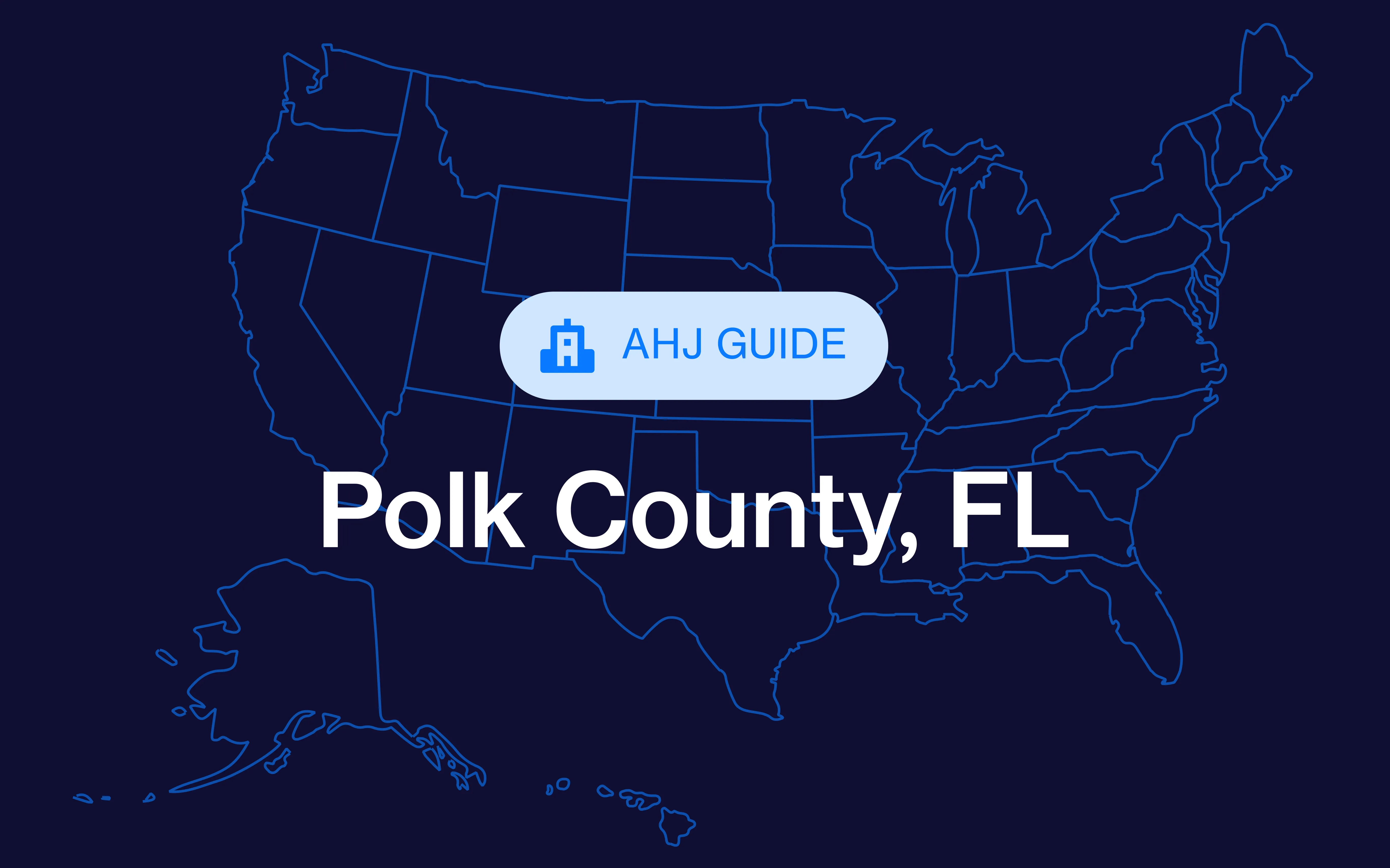If you're a developer, contractor, or builder looking to start a project in Boston, Massachusetts, one of your first jobs will be obtaining the right building permit. Boston's permitting process is designed to keep all construction projects in compliance with local building codes and safety standards. By following their guidelines, you can avoid administrative delays to your project.
However, getting a building permit in Boston can be a challenge. You need lots of information at the ready when city officials ask for it, and some jobs require a few different permits. This guide will walk you through the essentials, from understanding when a permit is required to helpful tips for avoiding delays.
What requires a building permit in Boston?
In Boston, most construction-related activities require a building permit. Whether you’re planning to build a new structure, make significant changes to an existing one, or even perform certain repairs, a permit is likely necessary.
Here’s a breakdown of what typically requires a permit:
- New construction: Any new building, whether residential or commercial
- Additions: Expanding an existing structure, such as adding a room or a second story
- Structural changes: Any changes that affect the structural integrity of a building, like removing or adding load-bearing walls
- Major renovations: Large-scale remodeling projects, such as a full kitchen or bathroom remodel
- Electrical, plumbing, and mechanical work: Significant changes to a building’s electrical, plumbing, or HVAC systems
- Demolition: Tearing down a building or part of a building
- Exterior work: Projects that change the exterior of a building, like installing new windows, siding, or a roof
Do you need a permit to remodel a bathroom in Boston?
Yes, if you’re remodeling a bathroom in Boston, you’ll probably need a building permit. Bathrooms typically involve electrical, plumbing, mechanical, and structural work, so permits are required to ensure any work that is performed is up to standards.
That said, simple cosmetic updates may not require a permit. For example, you can usually paint a wall or replace a faucet without approval—but beyond that, plan to obtain a permit.
How much is a construction permit in Boston?
The cost of a building permit in Boston varies depending on the type and scope of the project.
There are two types of permit applications:
- Long-form, for new construction and major repairs
- Short-form, for minor structural changes.
Long-form permit fees are higher than short-form permit fees.
The cost of a permit is generally a percentage of a project’s estimated cost, but some projects require multiple permits, meaning more fees.
Here’s a basic idea of what to expect from Boston building permit fees:
- Residential projects: For most residential construction projects, the permit fee is typically around $50 per $1,000 of construction cost. For example, if your project is estimated to cost $50,000, the permit fee would cost around $2,500.
- Commercial projects: Commercial construction projects have a higher fee, usually around $100 per $1,000 of construction cost.
- Minimum fees: Smaller projects may carry minimum fees of around $50 to $100.
Additional fees might apply for things like inspections, plan reviews, or zoning approvals.
How do you obtain a building permit in Boston?
There are a few steps to obtaining a building permit in Boston, but the process is basically just providing proof of a well-planned project and awaiting approval.
Here’s how you can get started:
1. Determine which permits you need
Get started by registering an account on Boston’s Inspectional Services Department (ISD) website. It’s here that you’ll figure out which permits to apply for, such as a building permit, electrical permit, or plumbing permit.
2. Prepare your application
Once you have all the applications you need, fill them out and submit detailed plans for your project. The entire application process can be done online through the ISD’s online portal.
3. Submit your application and pay fees
The last step of submitting your application is paying any required fees. These fees can be paid online through the portal, as well as in person at the Boston ISD office.
4. Wait for approval
Your application will be reviewed by the ISD upon submission. The process is extensive and can take time, so plan to allow for a few weeks before your permit is approved. You can check the status of your permit application using Boston’s Permit Finder.
5. Schedule inspections
Congratulations, your permit was approved! You can start work. Now it’s time to schedule inspections at various stages of the project so that the City of Boston can ensure your work complies with the permit and all relevant codes.
6. Complete the project and close the permit
Once your project is finished and all inspections are passed, you’ll need to close the permit. This final step confirms that the project was completed according to approved plans and that all work is up to code.
What information do I need for my Boston permit application?
You should have most of what you need for a permit by the time you apply for one. Your project planning should outline what the construction is for, who’s doing the work, and how much it will cost.
You’ll need several pieces of information for your application, including:
- Project plans: Detailed drawings or blueprints of the proposed work.
- Estimated construction cost: An accurate estimate of how much the project will cost.
- Property information: Details about where the work will take place, including the address, owner information, and proof that you’re authorized to work there.
- Contractor information: Provide the names and license numbers of all contractors working on your project.
- Zoning information: You may need to include zoning information, especially if your project involves changing the use of a property or building close to property lines.
How can I avoid delays with my permit?
Permitting delays are frustrating, but most of them are avoidable.
Here are some steps to avoid delays to your project:
- Submit a complete application: Missing information is the most common cause of delays, so make sure you submit all required documents and information.
- Double-check plans: The City has experts who review building plans, and if they spot discrepancies or notice something that isn’t up to code, they can deny your application.
- Respond quickly to requests: There’s a good chance the ISD will need additional information. The faster you give them what they need, the faster your application can be processed.
- Schedule inspections promptly: Delays in inspections can slow down the progress of your project.
Working with a Boston permit expediter
If you’re not interested in navigating the permit process alone, a permit expediter can help. These professionals specialize in obtaining permits, and they know the ins and outs of the process.
Large projects with huge budgets often opt for a permit expediter in order to save time and avoid delays. This is especially helpful for projects needing multiple permits or that have unique challenges.
However, these services can come at a high premium, and not all permit expediters have experience with Boston’s permitting process.
PermitFlow: A software-based alternative to permit expediters
For a more modern and cost-effective approach, PermitFlow is a software-based alternative to traditional permit expediters. PermitFlow streamlines the permit application process by letting you manage your permit application, track its status, and communicate with the ISD all in one place.
With PermitFlow, you can:
- Track applications online: PermitFlow lets you manage permit applications electronically.
- Track progress: Know where your application stands thanks to real-time updates on the status of your permit application.
- Collaborate with your team: If you’re working with a team of contractors or developers, PermitFlow makes it easy to collaborate and keep everyone on the same page.
- Reduce errors: PermitFlow’s automated checks help to catch common mistakes before submitting your application, reducing the risk of delays.
Simplify the permit process with PermitFlow
Using PermitFlow can make the permit process faster and less stressful, with intuitive, easy-to-navigate design. You’ll also have access to your permit applications anytime, anywhere, so you can manage as many projects as you need to at once.
Talk to a permit professional at PermitFlow to get started.








